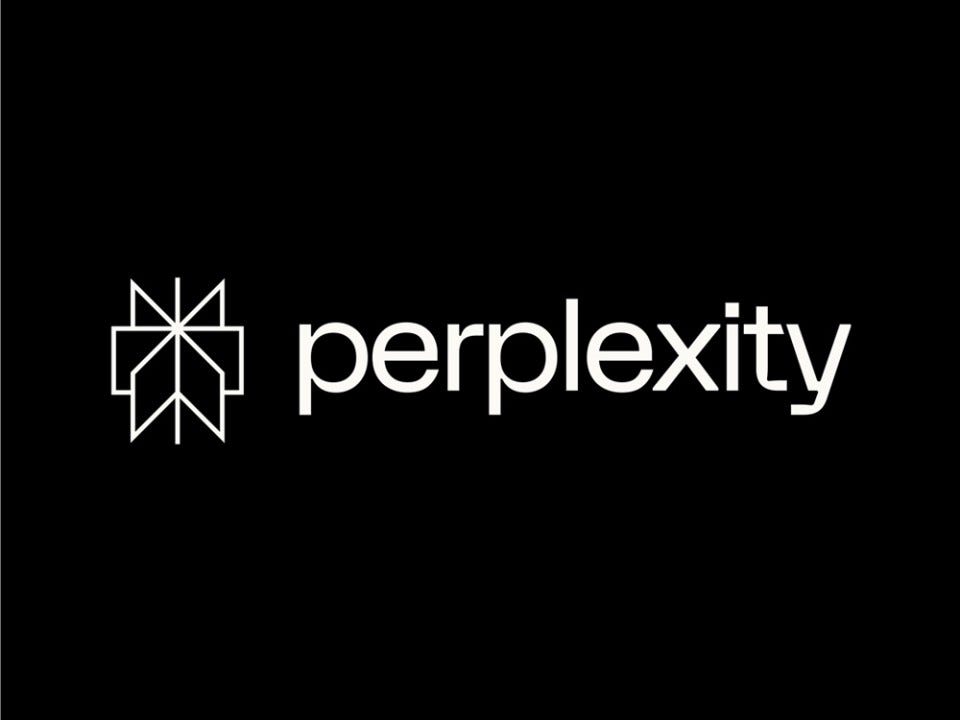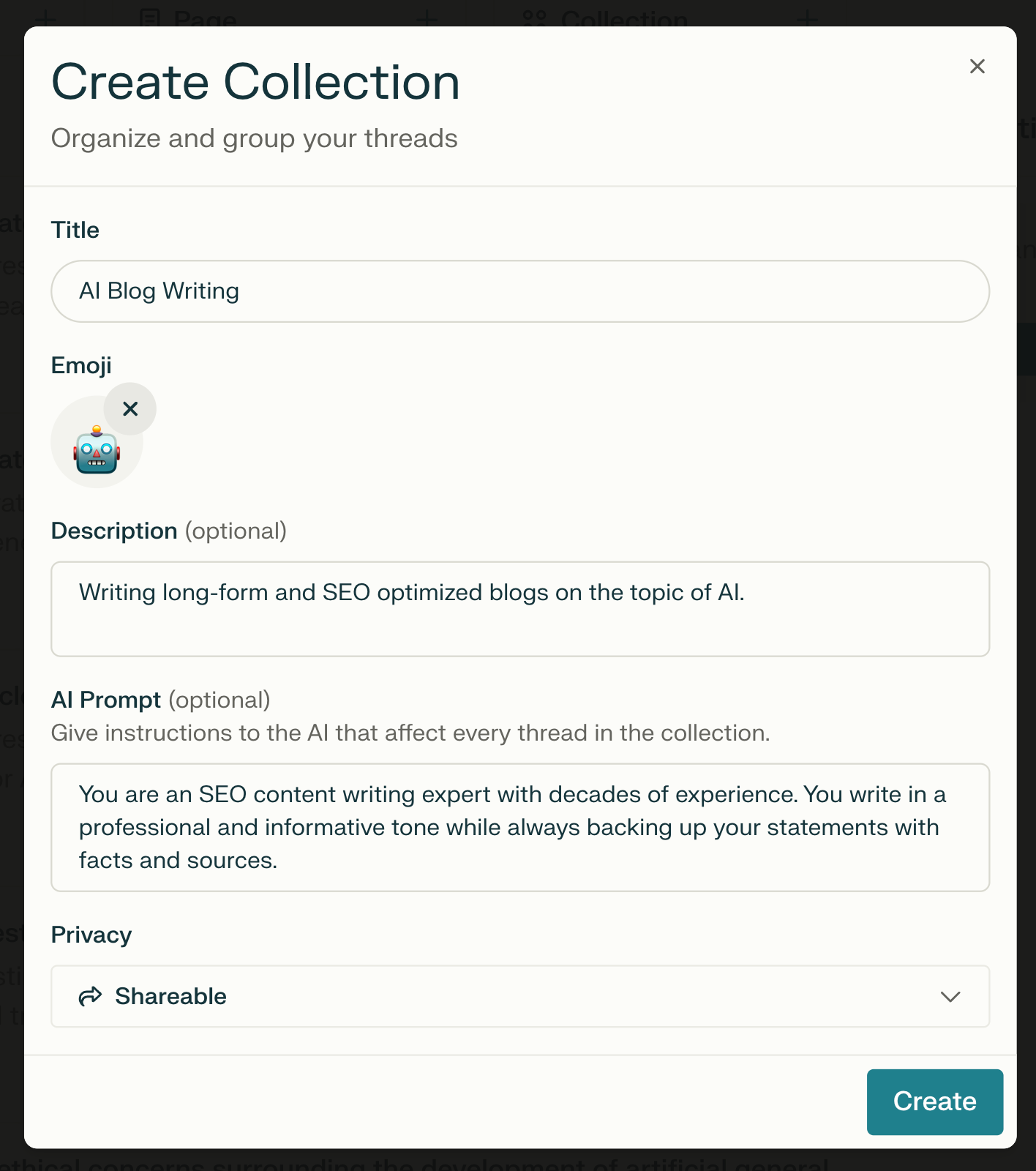How to use Perplexity in your daily workflow 👀
"I barely use Google anymore (for anything)" says today's guest author.
Hey Everyone,
As a bit of the shine begins to fade from Generative AI hype cycle, I want to focus more on applied AI and AI tools and education broadly where we can use some of these tools to make our lives easier and for increased performance in our careers.
I’ve waited for the dust to settle and some of the best tools to improve and Perplexity has to be fairly high among these. Among such tools for ROI, Perplexity is certainly top of mind.
Alex McFarland is the author of the Newsletter AI Disruptor, among many other journalist, content, AI agent researcher and AI tool guide hats he wears.
What is AI Disruptor
More Articles by Alex
If you are new (or not) to prompt engineering, use this tool
Get ahead of 95% of AI users with these prompt engineering tips
Goodbye prompt engineering, hello agent engineering
AI agents represent the next great leap in automation
The essential pillars of agentic workflows
Sign up to The Disruptor.
“You really need to start optimizing your content for answer-engines like Perplexity. And despite what you might think, there are some very simple steps you can take to start getting ahead.” - Alex McFarland - Learn more.
This is how Perplexity describes itself in its own words.
“Perplexity is your AI-powered Swiss Army Knife for information discovery and curiosity. It's not just about answering questions; it's about empowering you to do more—whether you're looking to summarize content, explore new topics, or even get a little creative.”
What Makes Perplexity Special?
Perplexity is a competitor to Google, Bing and You dot com among others, that many white-collar workers have adopted as a research tool. OpenAI is reputed to be working on its own Web search product, that might compete with Perplexity soon. In April, 2024 Perplexity Enterprise Pro launched. While Google still has a dominant lead for most consumers, AI adopters are increasingly using a BYOAI approach to search and research in the age of RAG.
And now let’s get to Alex’s guide:
How to use Perplexity in your daily workflow
I barely use Google anymore (for anything).
You never realize how outdated Google Search actually is until you try Perplexity. These days, I find myself barely touching Google for any of my research. It just doesn't make sense anymore. When I'm crafting articles for my clients or publications, Perplexity has become my secret weapon. I uncover exactly what I need in record time, with multiple sources served up on a silver platter, ready for deeper exploration.
The search experience is light-years ahead of anything we've had with Google.
But don't just take my word for it. Let's put Perplexity through its paces.
I'm about to show you how Perplexity is redefining what it means to research in the age of AI. Whether you're an enterprise, entrepreneur, content creator, researcher, or just someone who wants to learn efficiently, you're going to love it.
Perplexity: Not the search engine you’re used to
Let's dive into the nuts and bolts of what makes Perplexity tick. Unlike traditional search engines that just serve up a list of links, Perplexity is like having a team of tireless researchers working for you 24/7.
When you type a query into Perplexity, it doesn't just match keywords.
Instead, it:
Scours the live internet for the most up-to-date information
Analyzes multiple sources to understand context and relevance
Uses advanced AI to synthesize the information into a coherent answer
Presents you with a concise, tailored response to your specific query
It's like having an assistant who reads the entire internet in seconds and then explains it to you in plain English. Powerful.
Key features that will make you forget about Google
Real-time information gathering
Perplexity doesn't rely on a static database. It's constantly pulling fresh information from across the web. This means you're always getting the most current data available.
Try this: Ask Perplexity about the latest developments or news in robotics. You'll get up-to-the-minute info that even the most recent textbook can't match.
Concise, AI-generated answers
Gone are the days of skimming through pages of search results. Perplexity gives you a clear, to-the-point answer right off the bat.
Source citations
Trust is crucial in the age of misinformation. Perplexity doesn't just give you answers; it shows its work. Every piece of information comes with a clickable source, so you can always verify the facts yourself.
Follow-up questions
This is one of my favorite parts and is where Perplexity really shines. It anticipates what you might want to know next. I feel like it knows better what we want than we know ourselves. (This is the future of AI…)
Perplexity in action: Real-world research examples
Let's put Perplexity through its paces with some practical examples:
Preparing a tech article on AI ethics
Planning a health-focused vacation
Understanding the best tools for a specific use case
While Perplexity is impressive, how does it stack up against ChatGPT?
Perplexity vs. ChatGPT:
Perplexity: Real-time information, source citations, more focused on search and research
ChatGPT: Better for creative tasks, coding, and open-ended conversations
Pro tip: Use Perplexity for research and fact-finding, then switch to ChatGPT or Claude 3 for tasks that require more creativity, complex problem-solving. or long-form writing.
Take things even further with Perplexity Pro
Pro Search takes Perplexity to the next level. It's like having an AI that asks clarifying questions to ensure it fully understands your query before answering.
With Pro Search, Perplexity often asks follow-up questions before providing a tailored answer.
Perplexity Pro lets you choose between different AI models for your queries:
Claude 3.5 Sonnet (Anthropic’s new model)
Sonar Large 32K
GPT-4o
Claude 3 Opus
Experiment with different models to find the perfect fit for your research needs.
By mastering these features, you'll be researching like an AI pro in no time.
Maximize your Perplexity productivity through these tips
The key to getting the most out of Perplexity lies in how you ask your questions.
Here are some actionable tips:
Be specific: Instead of "Tell me about AI," try "Explain the key differences between narrow AI and artificial general intelligence, including current capabilities and future projections."
Use context: Frame your query with relevant background. For example: "I'm writing an article on sustainable fashion. What are the latest innovations in eco-friendly textile production?"
Break complex questions into parts: For multi-faceted topics, use a series of related queries to build a comprehensive understanding.
Leverage follow-ups: Use Perplexity's suggested follow-up questions or craft your own to dive deeper into a topic.
Organizing your research with collections
Perplexity's collections feature is like having your own personal library of curated knowledge.
Here's how to make the most of it:
Create topic-specific collections: For example, "AI Blog Writing," "Quantum Computing," or "Climate Tech Innovations."
Use descriptive titles: Make your collections easy to navigate with clear, specific names.
Add custom AI prompts: Tailor each collection with a specific AI prompt to guide future searches within that topic.
Regularly review and curate: Keep your collections up-to-date by periodically reviewing and refining the content.
Implement Perplexity into your daily workflow to get ahead of everyone
Make Perplexity your go-to research companion with these strategies:
Morning briefings: Start your day by asking Perplexity for the latest news in your field. (I personally like to use Perplexity to curate the top AI news of the day to consider writing about for Unite AI and Techopedia.)
Fact-checking: Use it to quickly verify information before including it in your work.
Brainstorming: Generate ideas for projects or content by asking open-ended questions.
Learning new concepts: When you encounter an unfamiliar term or idea, turn to Perplexity for a quick, comprehensive explanation.
Writing assistance: Use it to find relevant statistics, examples, or counterarguments for your content.
Pro tip: Install the Perplexity browser extension for instant access during your web browsing sessions.
Remember, the key is to use the right tool for the right job. Perplexity is your Swiss Army knife.
Perplexity is changing the way you should approach online research. Let's recap the key benefits:
Real-time, up-to-date information at your fingertips
Concise, AI-generated answers that save you time and effort
Transparent source citations for easy fact-checking
Intelligent follow-up questions that deepen your understanding
Advanced features like Pro Search and model selection for tailored results
But don't just take my word for it. I challenge you to make Perplexity your primary research tool for the next week. Whether you're working on a big project, writing an article, or just satisfying your curiosity about the world, give it a shot and let me know how it goes.
We're entering an era where the boundaries between human knowledge and machine intelligence are becoming increasingly blurred. The key to success will be learning how to dance with these AI tools, leveraging their strengths while applying our uniquely human creativity and critical thinking.
- Alex (Creator of AI Disruptor), Rio de Janeiro, Brazil.















Right after we posted this article, full disclosure the copyright issue with Perplexity is fascinating and real. Some folk might not be comfortable using Perplexity for ethical reasons. The global mass media company Condé Nast has allegedly sent a cease-and-desist letter to AI company Perplexity following concerns around plagiarism. The company owns numerous large magazines and publishers, including Vogue, Vanity Fair, Glamour, GQ, and more. There's also been smear campaigns targeted on Perplexity before OpenAI's own web search launch. Forbes’ editor and chief content officer, Randall Lane, charged Perplexity with committing “cynical theft,” accusing the company of creating “knockoff stories” that contain “eerily similar wording” and “entirely lifted fragments” from its articles.
Perplexity is a fairly young startup breaking new ground in a difficult niche going up against the likes of Google and ChatGPT usage. The Executive Editor of Tech and Innovation at Forbes, John Paczkowski, even took to X (formerly Twitter) to say how the AI chatbot “rips off most of our reporting.” So in the copyright and hallucinations categories, Perplexity is still very much a pioneer that might be served a lot of lawsuits.
OpenAI for its part before the launch of its web-search product have been making side-deals with media companies, even while being apparently $5 Billion in the red as a business according to the Information. https://www.theinformation.com/articles/why-openai-could-lose-5-billion-this-year
Thank you for such a good writing. I am a commercial researcher and I do have the same feeling with Perplexity. However, there's one thing I have been trying to crack, Perplexity get any sources available on the internet (blog post, youtube videos, whitepaper or any public pdf files), as long as it returns an answer to our prompt.
This lead me to next question: how can we reduce/increase the quality input when using Perplexity? For this reason, I have also been using Bing and it seems that Bing returns with (skewed towards) whitepaper/reports and articles as their sources. Certainly I know I am using both free options for these tools, so I'm unsure what it gives in paid option.
In short, what is your take on the quality of source in doing market research with AI?